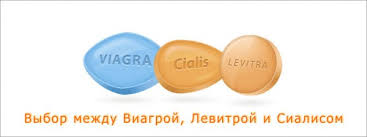Understanding Antikoagulanti Importance and Usage

Understanding Antikoagulanti: Importance and Usage
Antikoagulanti, or anticoagulants, are essential medications in modern medicine that help prevent blood clots from forming. These drugs play a crucial role in the management of various cardiovascular diseases. They are used to treat and prevent conditions such as deep vein thrombosis (DVT), pulmonary embolism (PE), and stroke, particularly in patients with atrial fibrillation. For further reading, you can visit Antikoagulanti https://lekarnaskupaj.si/antikoagulanti/. Understanding how these medications work, their types, and their appropriate usage is vital for both patients and healthcare providers.
What are Antikoagulanti?
Antikoagulanti are substances that inhibit the process of coagulation, which is the body’s way of stopping bleeding. By slowing down the blood’s ability to form clots, these medications significantly reduce the risk of potentially life-threatening conditions. They work by targeting various factors in the clotting cascade, which is a complex series of events that lead to the formation of a blood clot.
The Mechanism of Action
Anticoagulants act on different pathways of the coagulation system. Here are some of the main mechanisms:
- Vitamin K Antagonists: These include warfarin and similar drugs. They inhibit the action of vitamin K, which is essential for the synthesis of clotting factors II, VII, IX, and X in the liver.
- Direct Oral Anticoagulants (DOACs): These newer agents, such as rivaroxaban and apixaban, directly inhibit specific clotting factors, providing rapid and predictable anticoagulation without the need for regular monitoring.
- Heparins: Unfractionated heparin and low molecular weight heparins (like enoxaparin) enhance the activity of antithrombin III, which inactivates thrombin and factor Xa, reducing clot formation.
Types of Antikoagulanti
Antikoagulanti can be broadly classified into two categories:
- Oral Anticoagulants: These are taken by mouth and include medications like warfarin, rivaroxaban, apixaban, and dabigatran. They are convenient and suitable for long-term use.
- Injectable Anticoagulants: These include unfractionated heparin and low-molecular-weight heparins, which are administered via subcutaneous or intravenous routes. They are often used in hospital settings or for short-term treatment.
Indications for Use

The use of anticoagulants is indicated in various medical conditions:
- Atrial Fibrillation: Patients with this irregular heartbeat are at a higher risk for stroke. Anticoagulants are often prescribed to reduce this risk.
- Deep Vein Thrombosis (DVT): Patients recovering from surgery or those who are immobilized for extended periods may develop DVT. Anticoagulants can help prevent clot formation.
- Pulmonary Embolism: This condition occurs when a blood clot travels to the lungs, blocking a blood vessel. Anticoagulants are crucial in treating and preventing this condition.
Risks and Side Effects
While anticoagulants are life-saving, they also carry risks. The primary concern is bleeding, which can range from mild to severe. Some common side effects include:
- Bruising: Patients may notice easy bruising as their blood takes longer to clot.
- Gastrointestinal Issues: Some patients may experience nausea or gastrointestinal bleeding.
- Allergic Reactions: Though rare, some individuals may have allergic reactions to anticoagulant medications.
Individuals on anticoagulants must be monitored closely. Regular blood tests may be required to ensure the medication’s efficacy and safety.
Monitoring and Management
Patients on anticoagulants need regular follow-ups. For patients on warfarin, international normalized ratio (INR) tests are essential to ensure the blood’s clotting ability remains within the target range. Patients on DOACs generally do not require regular blood monitoring, but kidney function tests may be necessary.
Doctors will provide personalized advice on diet, lifestyle changes, and the use of additional medications, as certain foods (like those rich in vitamin K) can affect warfarin’s activity.
Lifestyle Considerations
Making lifestyle changes can enhance the effectiveness of anticoagulants and minimize risks:
- Diet: Patients should be consistent with their dietary intake, especially regarding vitamin K, to avoid fluctuations in anticoagulant effectiveness.
- Exercise: Regular physical activity can help improve overall cardiovascular health but should be discussed with the healthcare provider to ensure safety.
- Avoiding Certain Medications: Patients should consult with their doctors before taking new medications, including over-the-counter drugs and supplements, as they may interact negatively with anticoagulants.
Conclusion
Antikoagulanti are an important class of medications that significantly improve patient outcomes in various cardiovascular conditions. Understanding their mechanisms, indications, and potential risks is crucial for effective management. As with any medication, adherence to prescribed regimens and regular medical follow-ups are essential for maximizing the benefits of anticoagulant therapy while minimizing risks. Through proper education and communication with healthcare providers, patients can effectively manage their health while on anticoagulants.